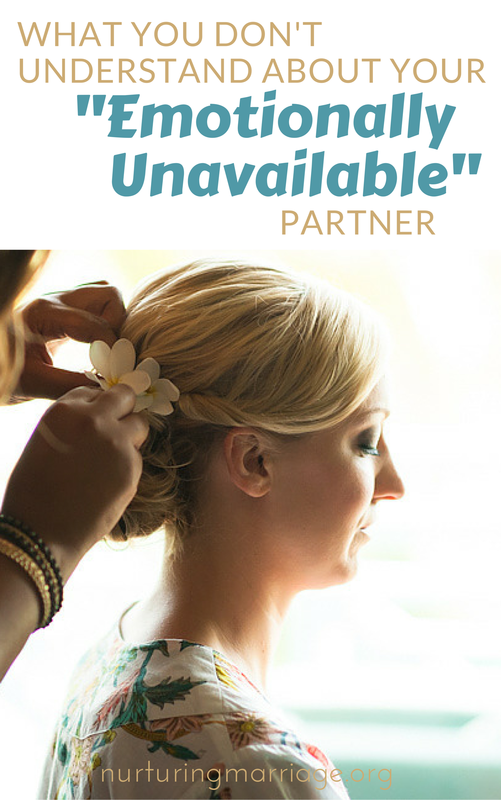|
Written by The Relate Institute
I was at a conference this weekend where it was once again reiterated to me how impactful our attachment in our early relationships is on our current relationships. When we talk about “attachment," we usually mean how safe and connected we feel to our partner (or friend, or parent, etc.). What the research has shown over the years is that our attachment style is mostly dictated by the relationship we had with our parents when we were little, but it can change as we have new relationship experiences throughout our lives. There are a few main attachment styles that I want to unpack today, because I think they’re often misunderstood and this misunderstanding can cause major problems in relationships.
Secure Attachment When you meet someone with a secure attachment style, they probably grew up with a steady flow of comfort, validation, empathy, and love from their parents and family. These are the people who aren’t too anxious, but aren’t scared of relationships either. Insecure Anxious Attachment When someone has an insecure attachment style, they either exhibit avoidant or anxious behaviors to cope with this attachment insecurity. The common misconception is that people who are anxious are the only ones who really want to connect and find love and make things work in their relationships. These are the partners who are calling or texting you all day long to stay connected when you’re apart, or who need to talk about their emotional pain right away and can’t hold on to it long enough to hear yours (what we refer to as “pursuers” in this post), etc. Insecure Avoidant Attachment On the other hand, when someone uses avoidance to cope with their insecurity, pop culture talks about them as being “emotionally unavailable," afraid to commit, narcissistic, (what we call “withdrawers” in this post) or any number of negative terms to make it sound like they don’t want connection or any kind of relationship, which is just not the case.
As Children…
In studies that determine children’s attachment styles (where the mom leaves the room), they find that those children who are anxious have a strong physiological response when their mom walks back in the room and they run to her and protest that she left them, but then cling to her tightly to try to reconnect. Avoidant children also have that same physiological response when their mom walks back in the room, but their face shows none of it. They keep their cool and slowly wander back to their mom and don’t outwardly reach for comfort, even though every cell in their body is telling them they need it. What this has taught us is that both types of children with insecure attachments want to be reconnected and feel comforted and safe again, but avoiders don’t think their parents are going to respond, so they don’t outright ask for it, they just gain physical proximity and silently hope their parents will comfort them. They still want it! They’re just terrified they’ll be rejected yet again. It turns out that those kids who have insecure anxious attachments come from relationships where they have intermittently received comfort and security from their parents, but at other times have been punished for having strong emotions. These kids can’t trust that comfort from their parents will always be there, but they keep asking, because once in a while–it is. Those kids who have avoidant attachment, though, come from relationships where the parents rarely, if ever, respond to their needs. They learn young that the best way to get their parents’ attention is to try to be “the perfect angel” because if they cry and ask outright for comfort, their parents ignore them or punish them almost every time. As Adults… So how does this impact you today? Well, in adult relationships, we have the same two main attachment styles and it’s SO important to recognize that someone who seems “emotionally unavailable," or cold, or distant, scared to commit, etc. really deep down craves connection, acceptance, and comfort, but is often too terrified to ask for it because they have NEVER had anyone respond to them. They aren’t cold-hearted, unfeeling people who don’t care about the relationship–they’re paralyzed by their fear of emotional rejection. By the same token, those who are anxious in their relationships aren’t intending to be critical, demanding, overwhelming, needy, etc, but they just can’t trust that their partner will always be there so they have to keep testing the waters of the relationship over and over again. All this because they never had a stable relationship where someone continuously loved, comforted, and accepted them as they were. So next time you’re frustrated by your partner’s inability to get on the same emotional page as you, ask if any of these feelings resonate with them. You may start talking about something much more important than how they didn’t load the dishes correctly, or how they were late for dinner again. If you need help starting a difficult conversation, try taking the RELATE Assessment together for a report of the areas in your relationship you should talk about together. **The ideas in this post are courtesy of Sue Johnson, author of Hold Me Tight, and the theory of Emotionally Focused Therapy.
Photo Credit: Crooze Photography
You may also enjoy Did You Know That Half of All Marriages Last Forever and Living the Love Language of Quality Time
3 Comments
Jack
3/25/2022 04:31:20 pm
My wife was always cheating on me, she even spends nights out. sometimes she even leave for the entire week end, pretending that she has work, but I know she just go meet some one, She left me with the kids to be with another man, my life was lame until, i asked Dr Sam to cast a spell for me. So that my wife can be a good woman and after his spell, my wife changed automatically, she now spends much more time with me and the kids and we're all happy family again, you can contact this great man [email protected] or WhatsApp him on his number +2349060421250
Reply
SCOTT WYCOFF
6/14/2022 01:18:05 pm
Hi, did you know there are spells to win love back from an ex. I have done it. I love reading about relationships and how to make them work, how to better the relationship, and how to keep the spark alive, even how to talk to them a certain way to get them to think a different way about the situation and you. If you need advice or want to win your ex back, try DR EMU copy and message on the following ( Email: [email protected] ) or ( WhatsApp: +2347012841542 ) It will change your mentality and get you what you want. Facebook page Https://web.facebook.com/Emu-Temple- 104891335203341
Reply
Rachael Mildred
1/22/2024 09:33:44 am
EFFECTIVE LOVE SPELL TO GET EX HUSBAND/BOYFRIEND OR EX WIFE/GIRLFRIEND AND CURE HERPES AND INFERTILITY THAT WORKS WITHIN 24 HOURS.
Reply
Leave a Reply. |
Conflict
|


 RSS Feed
RSS Feed


